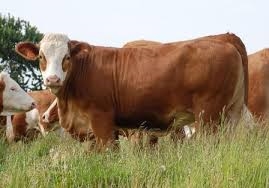Fungal Sinusitis

Fungal sinusitis is an infection of the sinus cavities caused by fungal organisms. Although less common than bacterial or viral sinusitis, fungal sinusitis can cause significant health issues in livestock if not promptly diagnosed and treated. This post provides a detailed overview of fungal sinusitis, including its definition, historical and regional context, species affected, predisposing factors, signs and symptoms, diagnosis, treatment, and prevention strategies.
What It Is
Fungal sinusitis is an infection that involves the sinus cavities, which can become inflamed due to fungal invasion. Unlike bacterial sinusitis, which is more prevalent, fungal sinusitis involves fungi that can cause chronic inflammation and damage to the sinus tissues. Common fungi responsible for this condition include Aspergillus, Candida, and Alternaria. Fungal sinusitis can be acute or chronic, and it often leads to significant respiratory and systemic symptoms if not effectively managed.
Historical and Regional Context
Fungal sinusitis has been recognized in veterinary medicine for several decades. Historically, it has been more frequently reported in regions with high humidity and environmental exposure to fungal spores. This condition is prevalent in areas where livestock are exposed to dusty environments or where certain fungi are endemic. Regions such as North America, parts of Europe, Central and South America, and tropical regions have reported cases of fungal sinusitis. Advances in diagnostic techniques and a better understanding of the disease have improved the management and treatment of fungal sinusitis.
Species Affected
Fungal sinusitis primarily affects:
- Horses: Particularly susceptible to fungal sinusitis caused by Aspergillus and Alternaria. It often presents as a chronic condition leading to nasal discharge and sinus pain.
- Cattle: Less commonly affected, but can experience fungal sinusitis, particularly in environments with poor hygiene and high fungal exposure.
- Sheep and Goats: Occasionally reported, but less frequently than horses and cattle.
- Other Livestock: Rare cases have been observed in pigs and other farm animals.
Predisposing Factors
Several factors increase the risk of fungal sinusitis:
- Environmental Conditions: High humidity, dust, and exposure to fungal spores in the environment enhance the risk of infection.
- Poor Ventilation: Inadequate ventilation in animal housing can contribute to fungal spore accumulation and increased infection risk.
- Trauma or Injury: Physical injury or trauma to the face or nasal passages can provide an entry point for fungi.
- Weakened Immune System: Animals with compromised immune systems due to illness, stress, or malnutrition are more susceptible to fungal infections.
- Chronic Respiratory Conditions: Pre-existing respiratory conditions or chronic sinusitis may predispose animals to fungal infections.
Signs and Symptoms
The signs and symptoms of fungal sinusitis can vary but commonly include:
- Nasal Discharge: Persistent nasal discharge that may be clear, purulent, or bloody.
- Nasal Congestion: Swelling and congestion in the nasal passages, leading to difficulty breathing.
- Facial Swelling: Swelling or distension of the facial tissues, particularly around the eyes and muzzle.
- Sinus Pain: Signs of discomfort or pain, including reluctance to touch the face or head.
- Foul Odor: Unpleasant odor from the nasal discharge or affected sinuses.
- Reduced Appetite: Decreased feed intake due to discomfort or difficulty eating.
- Fever: Elevated body temperature indicating systemic involvement.
- Behavioral Changes: Changes in behavior such as irritability or lethargy.
- Eye Involvement: In severe cases, the infection may extend to the eyes, causing conjunctivitis or exophthalmia (protruding eyes).
Diagnosis
Diagnosing fungal sinusitis involves several methods:
- Clinical Examination: Assessing symptoms such as nasal discharge, facial swelling, and nasal congestion.
- Endoscopy: Using an endoscope to visualize the nasal passages and sinus cavities for direct inspection and sampling.
- Imaging: Radiography or ultrasonography to visualize the extent of sinus involvement and identify any lesions or abnormal structures.
- Fungal Culture: Culturing samples from the nasal discharge or sinus tissue to identify the specific fungal pathogen.
- Histopathology: Examining tissue samples under a microscope to detect fungal elements and assess tissue damage.
- Serology: Testing blood samples for antibodies or antigens related to the fungal pathogens involved.
Treatment and Management
Effective management of fungal sinusitis includes:
- Antifungal Medications: Administering antifungal drugs such as itraconazole, fluconazole, or amphotericin B, depending on the causative fungus and the severity of the infection.
- Supportive Care: Providing supportive treatments, including anti-inflammatory medications to reduce pain and swelling.
- Surgical Intervention: In some cases, surgical procedures may be necessary to remove fungal debris or damaged tissue and improve drainage.
- Environmental Management: Improving ventilation and reducing dust and fungal spores in the animal housing environment.
- Nutritional Support: Ensuring a balanced diet to support the immune system and overall health of the affected animals.
- Regular Monitoring: Monitoring the progress of the infection and adjusting treatment as necessary.
Prevention Strategies
Preventing fungal sinusitis involves several proactive measures:
- Good Hygiene: Maintain cleanliness in animal housing and regularly clean and disinfect feed and bedding to reduce fungal exposure.
- Environmental Control: Ensure proper ventilation and control humidity to minimize fungal spore accumulation.
- Prompt Wound Care: Address any facial or nasal injuries promptly to prevent infection.
- Regular Health Checks: Conduct regular health assessments to detect and address any early signs of respiratory issues.
- Education and Training: Educate farm workers and caregivers about best practices for preventing respiratory infections and maintaining a healthy environment.
LivestockWellness.com is dedicated to providing valuable information and resources for managing fungal sinusitis and other livestock diseases. Understanding fungal sinusitis and implementing effective prevention and treatment strategies are essential for maintaining the health and well-being of your animals. For more information, visit our website and stay informed about the best practices for livestock wellness.